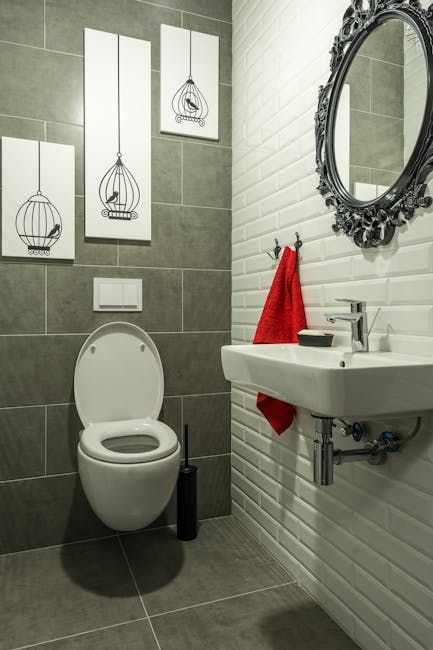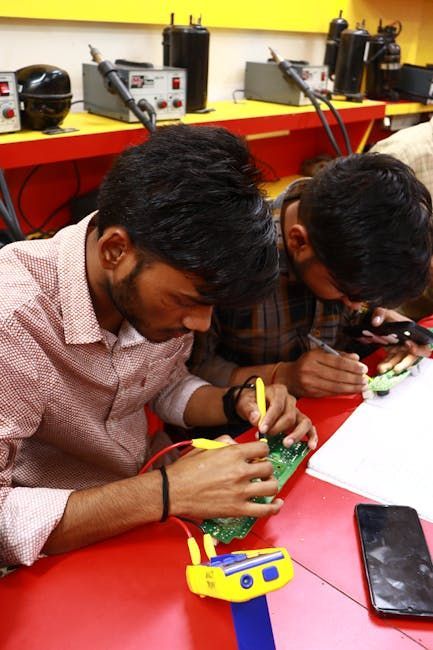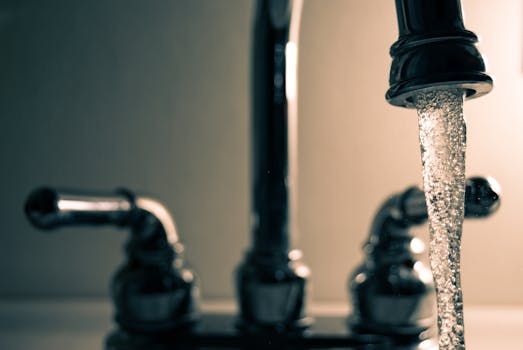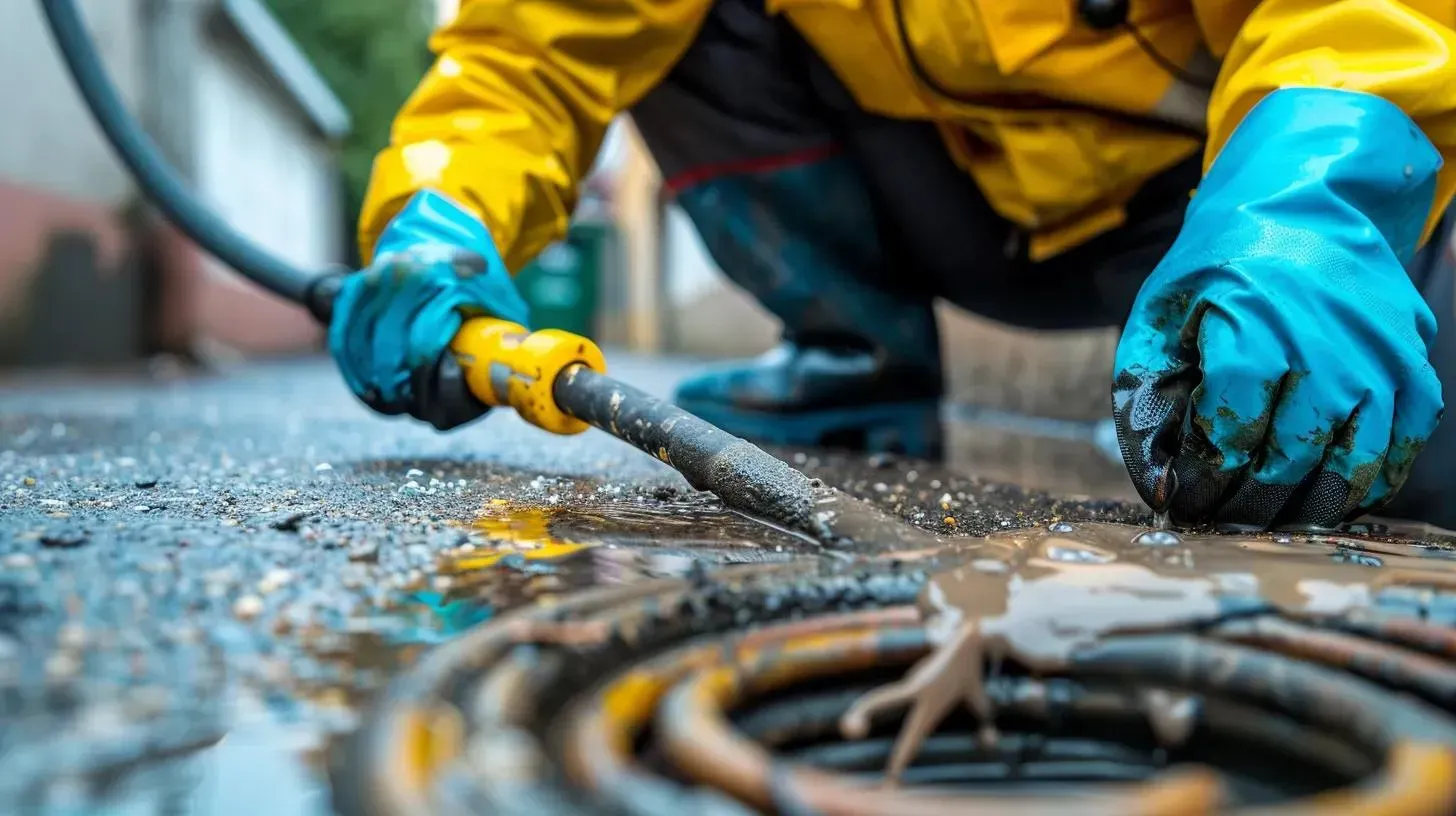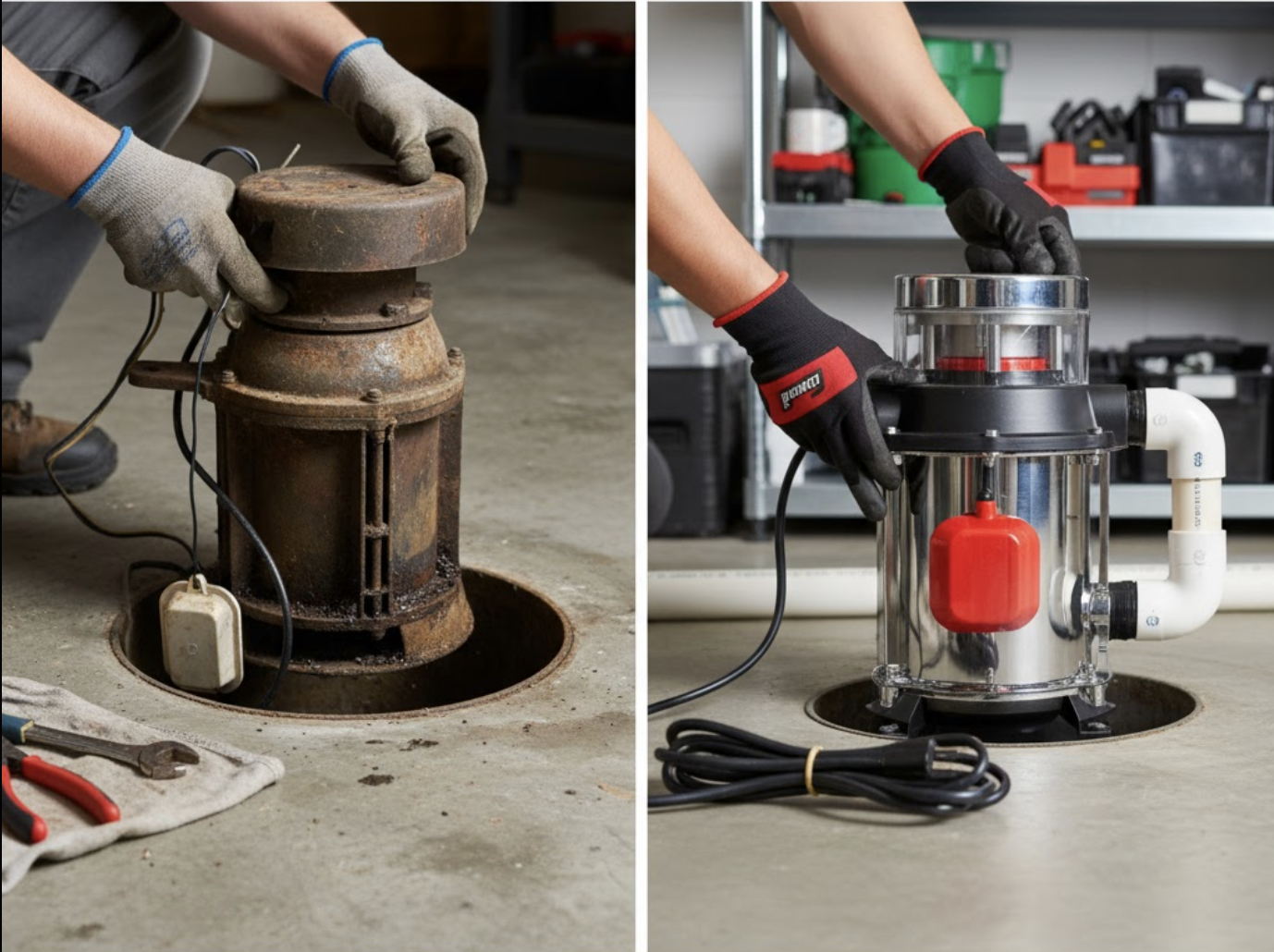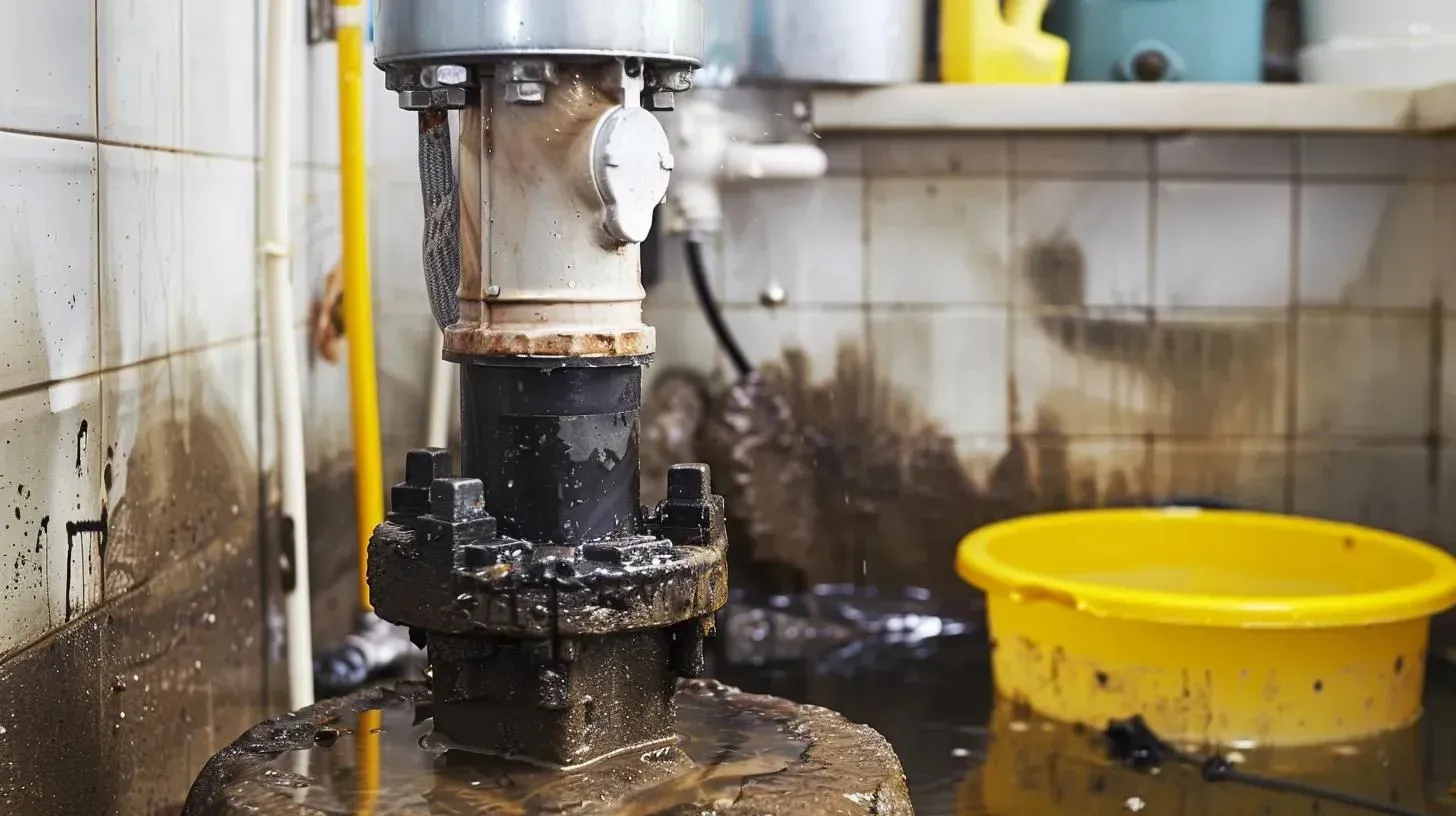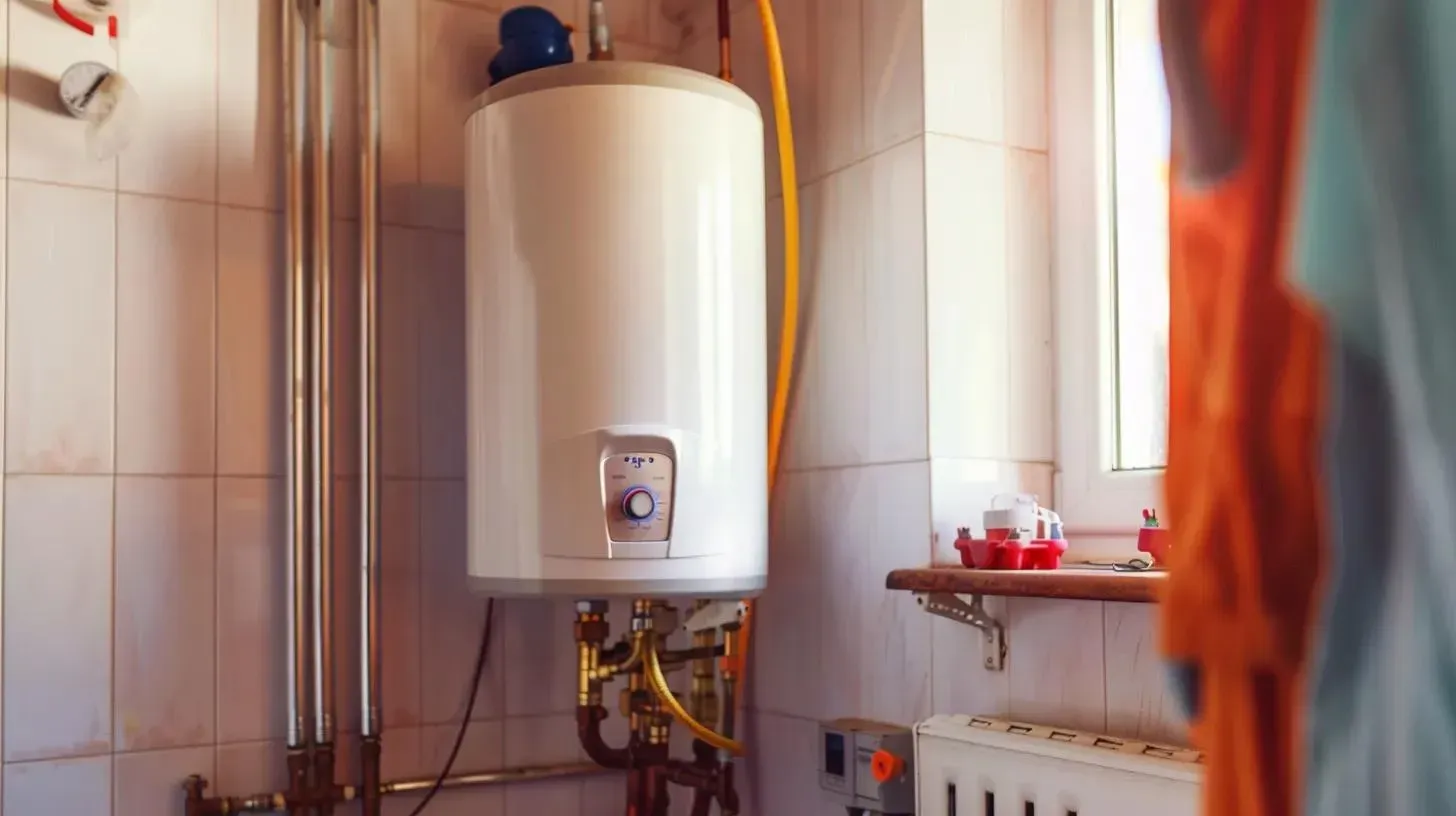Line Warning Signs & Cleanout Basics — Denver
Sewer Line Warning Signs & Cleanout Basics: How to Identify Problems and Maintain Your Sewer System
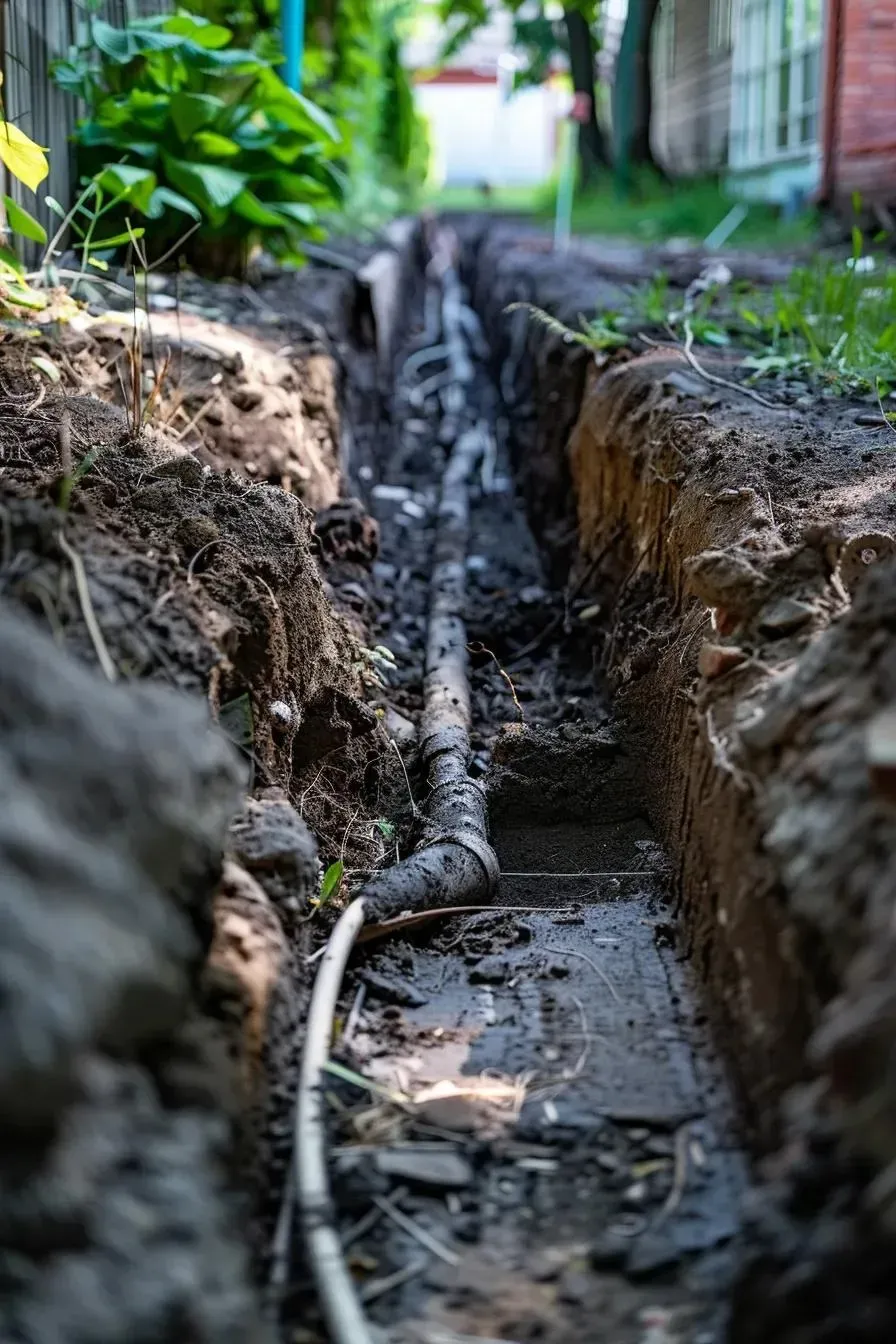
Don't let early sewer line warning signs turn into a costly nightmare, health hazard, or property disaster. This guide will show you how to spot the tell-tale signs of a failing sewer line, understand the crucial role of cleanouts in keeping things running smoothly, know when advanced methods like hydro jetting are your best bet, recognize when it's time for emergency repairs, use camera inspections to head off major issues, implement smart preventative measures, and find a trustworthy plumbing pro in Boulder and Denver. By catching sewer cleaning needs early and teaming up with a reliable, 24/7 plumbing expert who offers upfront pricing and top-notch workmanship, you'll safeguard your home and your wallet.
For expert help, visit Accountable Home Plumbing - Expert Plumbing Services in Denver Metro Area.
What Are the Most Common Warning Signs of a Clogged or Damaged Sewer Line?
When your sewer line is clogged or damaged, wastewater flow gets blocked, creating pressure, nasty odors, and potential environmental hazards that can quickly become emergencies if ignored. Catching these symptoms early means you can schedule preventive sewer cleaning in Boulder and avoid those dreaded sewer backups.
Sewer Line Warning Signs & Cleanout Basics: How to Identify Problems and Maintain Your Sewer System
Spotting the early warning signs of a compromised sewer line can help you tackle issues fast and dodge major plumbing disasters. If you suspect a problem with your sewer line, acting quickly to get sewer line repair can save you a ton of time and money.
Here are the five main red flags to keep an eye out for around your home.
How Do Slow Drains and Multiple Clogged Fixtures Indicate Sewer Line Issues?
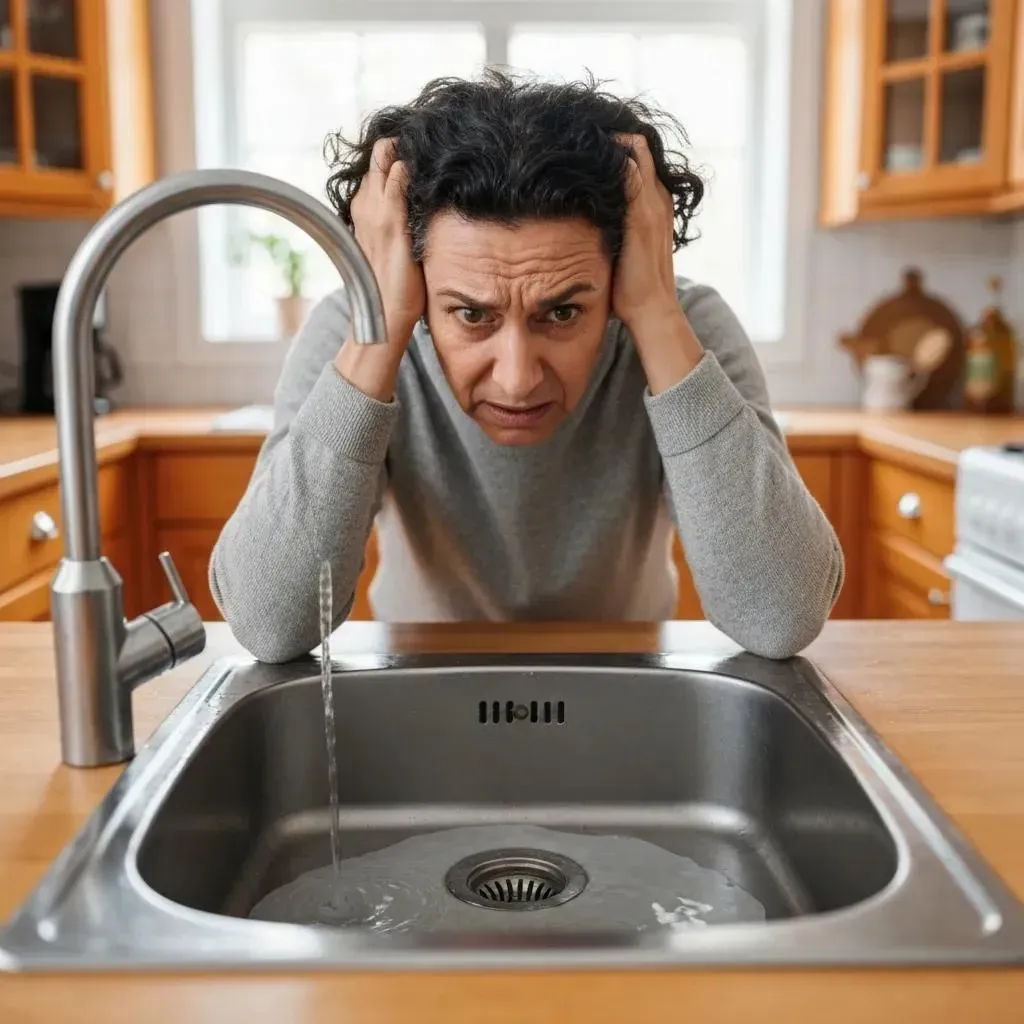
When sinks, showers, and tubs drain slowly, it's often because of partial blockages in your main sewer line that are slowing down wastewater flow, causing water to sit or drain sluggishly. If two or more fixtures are backing up at the same time, the clog is likely in the main sewer line, not just a single pipe.
- Kitchen sink backing up after flushing the toilet
- Water pooling in the shower before draining
- Multiple bathroom fixtures needing a plunger
If you're dealing with persistent slow drains, it points to a deep clog that simple snaking might not fix. It's time to schedule a professional inspection to get your drainage back to normal and prevent future backups.
Why Do Foul Odors from Drains Signal Sewer Gas Problems?
If you're catching foul, sulfur-like smells coming from your drains, sinks, or toilets, it means sewer gas is escaping through cracks or breaks in your sewer pipe. These gases are looking for the easiest way out, which is into your home. Sewer gas contains hydrogen sulfide and methane, which aren't just unpleasant but can also be a health risk and cause corrosion.
- Rotten-egg smell near basement drains
- Musty odor in the laundry room
- Sudden wafts of gas after heavy rain
Fixing these leaks through pipe repair or targeted cleaning will stop the gas from getting into your home, improve your indoor air quality, and keep your family safe.
What Causes Sewage Backups in Toilets and Tubs?
Sewage backups happen when wastewater can't get out of your home's drain system, forcing contaminated water back up through the lowest fixture, which is often a basement floor drain, tub, or toilet. This can be caused by tree roots invading your pipes, grease buildup, foreign objects, or even collapsed pipes.
- Tree roots find their way into and crack clay or cast-iron pipes
- Grease hardens and coats the inside of your pipes
- Debris like wipes and hygiene products block the flow
Clearing these blockages with hydro jetting or rooter services will restore sanitary conditions and prevent mold growth and structural damage.
Tree Root Intrusion in Sewer Systems: Review of Extent and Costs
Tree roots are a major cause of sewer blockages and can lead to expensive repairs. Factors that contribute to damage include old pipes with joints, shallow pipes, and fast-growing tree species.
How Do Gurgling Noises from Drains Reveal Sewer Line Blockages?
When you hear gurgling or bubbling sounds coming from your drains while flushing toilets or draining sinks, it's because air is getting trapped by partial blockages. This air bubbles up through standing water in the trap, signaling that flow in the main line is restricted.
- Gurgling sounds when using multiple fixtures at once
- Air bubbles appearing in sink drains
- Strange noises coming from floor drains
Clearing these obstructions promptly ensures smooth drainage, reduces stress on pipe joints, and prevents pipes from bursting.
Why Are Lush, Green Patches in Your Yard a Sign of Sewer Leaks?
If you notice unusually green or waterlogged patches of grass in your yard, especially above where your sewer line runs, it often means there are leaks underground. This wastewater is rich in nutrients, which makes the vegetation grow extra lush.
- Bright green circles appearing during dry spells
- Soft, muddy ground underfoot
- A musty smell lingering outdoors
Catching and fixing these leaks early can prevent soil erosion, sinkholes, and contamination of your groundwater.
What Is a Sewer Cleanout and Why Is It Essential for Sewer Maintenance?
A sewer cleanout is a capped access point strategically placed along your sewer line. It provides a direct way to inspect, clean, and maintain the system without having to dig up your yard. Having a cleanout makes routine sewer cleaning much easier, helps detect clogs early, and allows for quick access during emergencies to clear blockages, all while protecting your pipes and saving you money on repairs.
The Role Of Sewer Cleanouts And How To Maintain Them
Sewer cleanouts facilitate clearing blockages, performing emergency repairs, and conducting routine maintenance. Regular maintenance via these cleanouts not only wards off expensive excavations but also extends the sewer system's lifespan and helps prevent emergencies like sewage overflows.
Where Is the Main Sewer Cleanout Located in a Typical Home?
Most homes have a main cleanout located near the foundation wall, usually inside the basement or crawl space where the sewer line exits the house. If your home is built on a slab, the access point might be just outside the exterior wall, hidden under a removable cap. Making sure it's clearly marked and easy to get to means technicians can quickly hook up their equipment for efficient service.
What Are the Different Types of Sewer Cleanouts and Their Purposes?
Cleanouts come in different types, depending on their location and function:
- Main cleanout: This is the primary access point to your entire sewer line, used for dealing with major clogs.
- Secondary (yard) cleanout: Located closer to your property line, this is used for inspecting the sewer line further down.
- Branch cleanout: Installed on individual branch lines, these help isolate clogs within specific parts of your home's plumbing.
Knowing the different types of cleanouts helps ensure targeted maintenance, saving you time and service fees.
When Should You Use a Sewer Cleanout for Drain Access or Inspection?
You should use a cleanout whenever:
- Multiple drains in your home are backing up at the same time
- A sewer camera inspection is needed to see what's going on
- Your snake or hydro jetter can't reach the blockage from a regular drain
- You're performing routine sewer line cleaning, ideally every 18–24 months
Using the cleanout correctly ensures complete access and minimizes disruption to your home's finished surfaces.
How Does a Cleanout Cap Protect Your Sewer System?
The cleanout cap seals the access port, preventing sewer gases from escaping, stopping debris from getting in, and keeping groundwater out. This maintains the proper pressure inside your pipes and protects the sewer line from corrosion and root intrusion. Caps that fit snugly and have rubber gaskets help extend the life of your system and improve safety in your home.
How Does Hydro Jetting Work and When Should You Choose It for Sewer Cleaning?
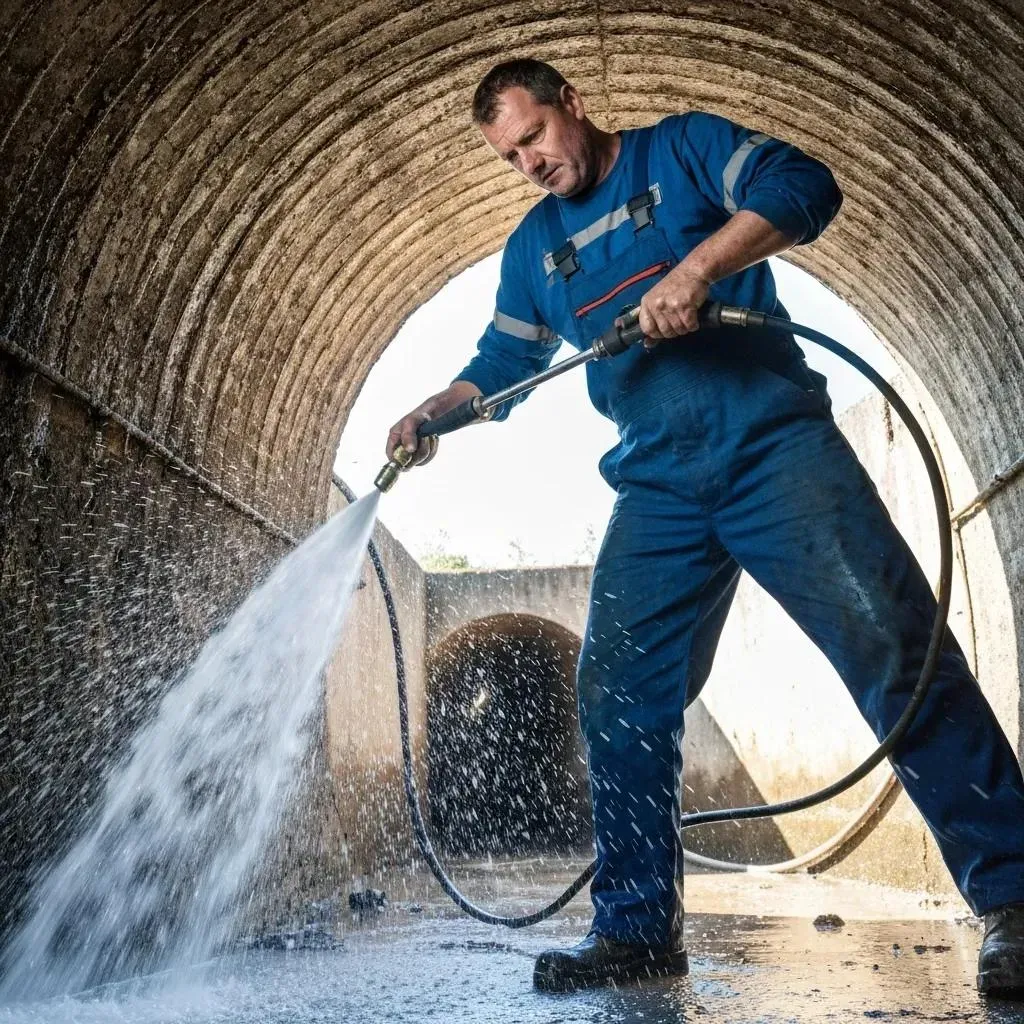
Hydro jetting uses a special nozzle to blast a high-pressure stream of water through your sewer line. This powerful stream scours the inside of the pipes, clearing out grease, scale, roots, and other debris in one go. It's an eco-friendly, chemical-free method that restores your pipes to their full diameter, improves flow, and helps prevent future clogs
How Effective is Hydro Jetting: A Comprehensive Analysis
Hydro jetting is highly effective for clearing stubborn clogs and maintaining clear pipes by using high-pressure water streams to remove blockages and debris. This method not only clears away clogs but also cleans the interior surfaces of pipes, reducing the chances of future blockages.
What Are the Benefits of Hydro Jetting Compared to Traditional Rooter Services?
Hydro jetting offers these advantages:
- Completely removes grease and scale, unlike rooters that only break them up
- Cuts through roots and flushes out debris in a single pass
- Leaves pipes clean and ready for accurate camera inspections
- Uses only water, making it safe for the environment
These benefits help extend the life of your pipes and mean fewer repeat service calls.
How Does High-Pressure Water Remove Stubborn Clogs and Grease Buildup?
The hydro jetter nozzle first punches through the clog, then reverses its spray to blast away buildup along the pipe walls. This pushes the loosened material towards the main sewer or cleanout, where it can be removed. This powerful cleaning action restores smooth pipe surfaces, making it harder for grease and solids to stick in the future.
When Is Hydro Jetting the Best Solution for Root Intrusion and Sewer Blockages?
Opt for hydro jetting when:
- Roots keep growing back after being snaked out
- Grease buildup has significantly narrowed your pipes
- You need to remove scale from older clay or cast-iron pipes
- You want to perform thorough preventative cleanings every six months
Hydro jetting provides a deep clean and maintenance in one service, minimizing the need for repeat visits.
When Should You Call for Emergency Sewer Repair Services in Denver?
You need immediate sewer repair when a sudden failure puts your property, health, or safety at risk. Emergency services act fast to contain the problem, minimize water damage, and reduce the chances of contamination.
What Are the Most Common Sewer Emergencies Requiring Immediate Attention?
- A burst sewer pipe flooding your basement
- Sewage backing up extensively into your fixtures
- A major cleanout cap failure leaking raw sewage
- A collapsed pipe segment causing a sinkhole
Recognizing these emergencies and calling for 24/7 service right away prevents serious structural damage and health hazards.
How Does 24/7 Emergency Sewer Service Work and What Can You Expect?
- We answer your call immediately and dispatch a technician within the hour.
- We perform a rapid on-site assessment using cameras or probes.
- We isolate and contain sewage using bypass pumps if necessary.
- We provide upfront repair options and transparent pricing.
This process quickly restores sanitary conditions and ensures there are no hidden fees.
What Are the Risks of Delaying Emergency Sewer Repairs?
Putting off repairs allows sewage to corrode your pipes, encourages mold growth, contaminates groundwater, and weakens your home's foundation. This leads to much higher restoration costs and potential legal issues.
How Can Sewer Line Inspections Help Prevent Major Sewer Problems?
Proactive sewer inspections are key to finding hidden damage, blockages, or structural issues before they turn into major problems. Regular camera diagnostics help you plan for targeted maintenance and budget effectively.
What Is a Sewer Camera Inspection and How Does It Identify Pipe Damage?
A sewer camera inspection involves sending a waterproof video camera through a cleanout into your sewer line. It transmits live video footage, showing any cracks, root intrusion, separated joints, or blockages. This non-invasive inspection pinpoints the exact location and nature of the problem, allowing for precise repairs without unnecessary digging.
How Often Should You Schedule Sewer Line Inspections and Cleanings?
For most homes in the Denver area, scheduling camera inspections and cleanings every 18–24 months is ideal to prevent scale buildup, root regrowth, and undetected leaks. If your property has mature trees or you've experienced frequent backups, consider annual service.
What Factors Affect Sewer Line Inspection Costs in Boulder and Denver?
The cost of an inspection depends on:
- The length and diameter of your sewer pipe
- How easy it is to access the cleanout ports
- The time and equipment the technician needs
- How serious the detected issues are
Sewer Camera Inspection Cost Denver | Sewer Scope & Video Inspection
Sewer camera inspection costs are far less than the cost of sewer repairs if problems go undetected. The plumbing camera picks up a variety of problems, including tree roots, misaligned, broken, punctured, off-grade or corroded pipes. The plumbing camera also identifies grease buildup, leaks, clogs, and obstructions.
Getting clear, upfront quotes means no surprises and helps you plan the best maintenance schedule for your sewer system.
What Preventative Measures Can Homeowners Take to Avoid Sewer Line Issues?
Adopting simple habits and making smart landscaping choices can significantly reduce the risk of clogs, leaks, and root intrusion, protecting your sewer system and saving you money on long-term maintenance.
How Can Regular Sewer Cleanouts Reduce the Risk of Clogs and Backups?
Using your main cleanout periodically for snaking or hydro jetting helps prevent scale and roots from building up at the source. This keeps your pipes clear and ensures smooth wastewater flow between professional inspections.
What Are Best Practices for Preventing Tree Root Intrusion in Sewer Lines?
Keep your pipes safe from roots by:
- Planting trees at least 10 feet away from your sewer line
- Installing root-inhibiting sleeves where the sewer line enters the cleanout
- Scheduling hydro jetting every six months if you have many trees
- Checking the condition of your sewer line before planting new trees
These steps help protect your pipes from invasive roots and costly repairs.
How Does Transparent Pricing and Expert Workmanship Benefit Sewer Maintenance?
When you get upfront, itemized quotes, you know exactly what to expect financially, there are no hidden fees, and it builds trust. Expert work from certified plumbers ensures repairs meet local codes, extend the life of your pipes, and maintain your property's value.
Where Can You Find Reliable Sewer Line Repair and Cleanout Services in Boulder and Denver?
Choosing a dependable local company means you'll get fast service, consistent quality, and compliance with local regulations. Look for licensed and insured plumbers who offer a full range of sewer solutions.
Why Choose Accountable Home Plumbing for Sewer Line Services?
Accountable Home Plumbing is available 24/7, offers clear upfront pricing, and has veteran technicians skilled in hydro jetting, camera inspections, trenchless repair, and cleanout installation. Their dedication to reliability and customer satisfaction makes them the top choice for sewer emergencies and maintenance in the Denver Metro area.
How to Contact Accountable Home Plumbing for Sewer Line Inspections and Repairs?
To schedule a sewer camera inspection, hydro jetting service, or emergency repair, just call our hotline anytime or book an appointment online. Expert help is only a phone call away, ensuring your sewer system stays clear, safe, and working perfectly.
Keeping your sewer line healthy requires early detection and regular care. By paying attention to warning signs, using your cleanouts, opting for advanced cleaning methods, and partnering with a trusted local expert, homeowners in Boulder and Denver can avoid messy backups and expensive repairs. Take action now to protect your property and schedule your next sewer service today.

